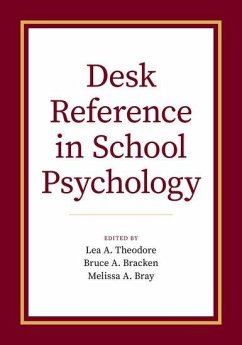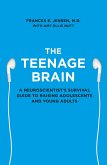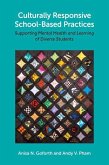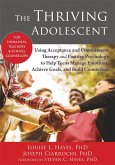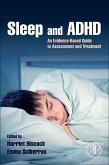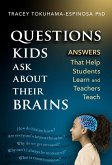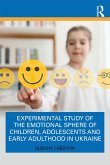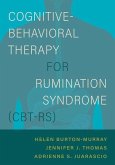Desk Reference in School Psychology
Herausgeber: Theodore, Lea A; Bray, Melissa A; Bracken, Bruce A
Desk Reference in School Psychology
Herausgeber: Theodore, Lea A; Bray, Melissa A; Bracken, Bruce A
- Gebundenes Buch
- Merkliste
- Auf die Merkliste
- Bewerten Bewerten
- Teilen
- Produkt teilen
- Produkterinnerung
- Produkterinnerung
The Desk Reference in School Psychology provides practitioners, academics, and students with a compendium of current, evidence-based, and state-of-the-art best practices in education and psychology. This comprehensive, detailed, and empirically supported resource renders the Desk Reference an ideal, practical go-to guide for all school-based professionals, including classroom teachers, counselors, social workers, and school psychologists.
Andere Kunden interessierten sich auch für
![The Teenage Brain The Teenage Brain]() Frances E. JensenThe Teenage Brain22,99 €
Frances E. JensenThe Teenage Brain22,99 €![Culturally Responsive School-Based Practices Culturally Responsive School-Based Practices]() Anisa N. Goforth (Professor of Psychology, Professor of Psychology,Culturally Responsive School-Based Practices65,99 €
Anisa N. Goforth (Professor of Psychology, Professor of Psychology,Culturally Responsive School-Based Practices65,99 €![The Thriving Adolescent The Thriving Adolescent]() Louise L. HayesThe Thriving Adolescent55,99 €
Louise L. HayesThe Thriving Adolescent55,99 €![Sleep and ADHD Sleep and ADHD]() Sleep and ADHD87,99 €
Sleep and ADHD87,99 €![Questions Kids Ask about Their Brains Questions Kids Ask about Their Brains]() Tracey Tokuhama-EspinosaQuestions Kids Ask about Their Brains52,99 €
Tracey Tokuhama-EspinosaQuestions Kids Ask about Their Brains52,99 €![Experimental Study of the Emotional Sphere of Children, Adolescents and Early Adulthood in Ukraine Experimental Study of the Emotional Sphere of Children, Adolescents and Early Adulthood in Ukraine]() Oleksiy ChebykinExperimental Study of the Emotional Sphere of Children, Adolescents and Early Adulthood in Ukraine38,99 €
Oleksiy ChebykinExperimental Study of the Emotional Sphere of Children, Adolescents and Early Adulthood in Ukraine38,99 €![Cognitive-Behavioral Therapy for Rumination Syndrome (Cbt-Rs) Cognitive-Behavioral Therapy for Rumination Syndrome (Cbt-Rs)]() Helen Burton Murray (Harvard Medical School )Cognitive-Behavioral Therapy for Rumination Syndrome (Cbt-Rs)48,99 €
Helen Burton Murray (Harvard Medical School )Cognitive-Behavioral Therapy for Rumination Syndrome (Cbt-Rs)48,99 €-
-
-
The Desk Reference in School Psychology provides practitioners, academics, and students with a compendium of current, evidence-based, and state-of-the-art best practices in education and psychology. This comprehensive, detailed, and empirically supported resource renders the Desk Reference an ideal, practical go-to guide for all school-based professionals, including classroom teachers, counselors, social workers, and school psychologists.
Hinweis: Dieser Artikel kann nur an eine deutsche Lieferadresse ausgeliefert werden.
Hinweis: Dieser Artikel kann nur an eine deutsche Lieferadresse ausgeliefert werden.
Produktdetails
- Produktdetails
- Verlag: Oxford University Press Inc
- Seitenzahl: 880
- Erscheinungstermin: 5. Januar 2024
- Englisch
- Abmessung: 251mm x 185mm x 66mm
- Gewicht: 1694g
- ISBN-13: 9780190092344
- ISBN-10: 0190092343
- Artikelnr.: 68046273
- Herstellerkennzeichnung
- Libri GmbH
- Europaallee 1
- 36244 Bad Hersfeld
- gpsr@libri.de
- Verlag: Oxford University Press Inc
- Seitenzahl: 880
- Erscheinungstermin: 5. Januar 2024
- Englisch
- Abmessung: 251mm x 185mm x 66mm
- Gewicht: 1694g
- ISBN-13: 9780190092344
- ISBN-10: 0190092343
- Artikelnr.: 68046273
- Herstellerkennzeichnung
- Libri GmbH
- Europaallee 1
- 36244 Bad Hersfeld
- gpsr@libri.de
Lea A. Theodore, PhD, Professor of School Psychology at Adelphi University, licensed psychologist, and Past President of Division 16 of the APA, consults with schools, behavioral health settings, publishing companies, and the judiciary as an expert witness. Her more than two-decade career and a multitude of articles, chapters, and books advance effective intervention strategies to improve student functioning. Bruce A. Bracken, PhD, is an emeritus professor at The College of William & Mary. Dr. Bracken has published scores of articles, chapters, books, and tests; cofounded the Journal of Psychoeducational Assessment; and is Past President of the International Test Commission. He has received several awards, including the Senior Scientist award from the American Psychological Association. Melissa A. Bray, PhD, is a professor and director of the School of Psychology program at the University of Connecticut, a licensed psychologist, and Past President of Division 16 of the APA. Dr. Bray's professional experience spans more than 30 years as a consultant, school psychologist, speech-language pathologist, professor, and school psychology discipline coordinator. She has more than 215 publications.
* Preface
* Lea A. Theodore, Bruce A. Bracken, Melissa A. Bray
* Part One: Assessment and Intervention
* Cognitive
* Chapter 1: Cognitive-Intellectual Assessment of School-Age Children
* John D. Wasserman
* Chapter 2. Assessment of Gifted and Talented Children and Adolescents
* Nicholas Gelbar, Sally M. Reis, and Joseph S. Renzulli
* Chapter 3. Nonverbal Assessment
* Natalie R. Hassett, R. Steve McCallum, and Bruce A. Bracken
* Chapter 4. Preschool Assessment
* Vincent C. Alfonso, Joseph R. Engler, and Esther Stavrou
* Chapter 5. Intellectual Disabilities
* Stephen Greenspan, John Driscoll, and Gail Loughlin Rogers
* Academic
* Chapter 6. Academic Assessment and Intervention
* Rachel Brown-Chidsey
* Chapter 7. Supporting Student Achievement in Elementary Mathematics:
The Role of the School Psychologist
* Ben Clarke, Marah Sutherland, Taylor Lesner
* Chapter 8. Mathematics Disabilities, Low Achievement, and Relevant
Evidence-Based Interventions
* Elizabeth McCallum, Kathleen B. Aspiranti, and Ara J. Schmitt
* Chapter 9. Dyslexia
* R. Steve McCallum and Sherry Mee Bell
* Chapter 10. Homework and Study Strategies
* Lea A. Theodore and Dana E. Boccio
* Chapter 11. Homeschooling in Children and Adolescents
* Mary Louise Cashel and Lea A. Theodore
* Social Emotional
* Chapter 12. Personality, Social-Emotional, and Behavioral Assessment
in Children and Adolescents
* Sara Whitcomb and Hee Kyung Park
* Chapter 13. Functional Behavioral Assessment and Behavior
Intervention Plans
* Tammy L. Hughes, Mary Comis, and Jeffrey A. Miller
* Chapter 14. Disruptive Behavior Disorders in Children and Adolescents
* Jeffrey D. Burke, Emilie J. Butler, and Asia G. Perkins
* Chapter 15. Attention-Deficit/Hyperactivity Disorder
* George J. DuPaul, Chelsea Z. Busch, and Alicia Chunta
* Chapter 16. Depressive Disorders in Children and Adolescents
* Ralph E. Cash, Alyssa Newman, Shannon Worton, and Natalia María
Ramírez, and Sarah Valley-Gray
* Chapter 17. Pediatric Bipolar Disorder in Children and Adolescents
* Mary A. Fristad
* Chapter 18. Anxiety Disorders (Social, Separation, General) in
Children and Adolescents
* John S. Carlson and Sally Askar
* Chapter 19. Obsessive-Compulsive Disorder in Children and Adolescents
* Morgan M. McNeel, Stacey C. Grebe, Amanda Palo, Wayne K. Goodman,
Eric A. Storch, and Sophie C. Schneider
* Chapter 20. Specific Phobia in Children and Adolescents
* Laura D. Seligman, Liza Talavera-Garza, and Thomas H. Ollendick
* Chapter 21. School Attendance Problems
* Christopher A. Kearney, Carolina Gonzálvez, and Victoria Bacon
* Chapter 22. Post-Traumatic Stress Disorder in Children and
Adolescents
* Stephen E. Brock
* Chapter 23. Youth Suicidal Behavior
* James J. Mazza and David N. Miller
* Chapter 24. Nonsuicidal Self-Injury
* David N. Miller and James J. Mazza
* Neuropsychology
* Chapter 25. Neuropsychological Assessment in Children and
Adolescents: Applications for the School Psychologist
* Stephen R. Hooper, Peter Duquette, Cari Pittleman, and Hanna Leong
* Chapter 26. Autism Spectrum Disorder
* Jonathan M. Campbell, Karena Cooper-Duffy, and Johanna Price
* Chapter 27. Tourette Syndrome in Children and Adolescents
* Aarti P. Bellara, Emily L. Winter, Johanna M. deLeyer-Tiarks, and
Laura R. Freise
* Chapter 28. Traumatic Brain Injury and Concussions in Children and
Adolescents
* Margaret Semrud-Clikeman
* Part Two: Consultation
* Chapter 29. Behavioral Consultation: Linking Referral Concerns,
Intervention, and Outcomes
* George H. Noell, Kristin A. Gansle, and Anna C. J. Long
* Chapter 30. Conjoint Behavioral Consultation
* Henry P. Bass, Karalynn E. Brown, and Susan M. Sheridan
* Chapter 31. Instructional Consultation
* Sylvia Rosenfield, Lauren Kaiser, and Kate Cramer
* Chapter 32. Program Evaluation and Cultural Engagement: View with a
21st Century Lens
* Enedina García-Vázquez and Luis A. Vázquez
* Part Three: Medical Problems
* Chapter 33. Asthma in Children and Adolescents
* Melissa A. Bray, Emily Winter, Adeline Bray, Johanna M.
deLeyer-Tiarks, and Sai Aravala
* Chapter 34. Childhood Cancer in Children and Adolescents
* Karen L. Cross, Lauren Gammie, and Cheryl Maykel
* Chapter 35. Epidemiological Research in Schools: From Theory to
Practice
* Rich Gilman
* Chapter 36. Adolescent Sexual Behavior: Prevalence, Risks, and
Health-Affirming Supports
* Adena B. Meyers and Laura Finan
* Part Four: Diversity in Learning
* Chapter 37. Social Emotional Learning in Children and Adolescents
* Frank M. Gresham
* Chapter 38. Evidence-Based Interventions for Children and Adolescents
Who Experience Parental Separation and Divorce
* Karey L. O'Hara, C. Aubrey Rhodes, and Sharlene A. Wolchik
* Chapter 39. Positive Psychology in Education
* Shannon M. Suldo, Letty DiLeo, and Katrina Scarimbolo
* Chapter 40. Culturally Responsive Interventions: Issues, Status,
Resources, and Steps-in-Adaptations
* Margaret R. Rogers
* Chapter 41. Sexual and Gender Minorities (SGM) in the Schools
* Alan Smerbeck
* Part Five: Crises, Conditions, and Responses
* Chapter 42. Crisis Prevention, Preparation, and Intervention
* Shane R. Jimerson, Mihya Weber, and Yuexin Zhang
* Chapter 43. Supporting Students and Schools in the Aftermath of
Natural Disasters
* Philip J. Lazarus and Annela Costa
* Chapter 44. Trauma-Informed Care in Children and Adolescents
* Jacqueline A. Brown, Ashlyn Kincaid, and Jennifer Rotzal
* Chapter 45. Threat Assessment
* Dewey Cornell
* Chapter 46. Resilience
* Kathleen A. Yu and Frank C. Worrell
* Lea A. Theodore, Bruce A. Bracken, Melissa A. Bray
* Part One: Assessment and Intervention
* Cognitive
* Chapter 1: Cognitive-Intellectual Assessment of School-Age Children
* John D. Wasserman
* Chapter 2. Assessment of Gifted and Talented Children and Adolescents
* Nicholas Gelbar, Sally M. Reis, and Joseph S. Renzulli
* Chapter 3. Nonverbal Assessment
* Natalie R. Hassett, R. Steve McCallum, and Bruce A. Bracken
* Chapter 4. Preschool Assessment
* Vincent C. Alfonso, Joseph R. Engler, and Esther Stavrou
* Chapter 5. Intellectual Disabilities
* Stephen Greenspan, John Driscoll, and Gail Loughlin Rogers
* Academic
* Chapter 6. Academic Assessment and Intervention
* Rachel Brown-Chidsey
* Chapter 7. Supporting Student Achievement in Elementary Mathematics:
The Role of the School Psychologist
* Ben Clarke, Marah Sutherland, Taylor Lesner
* Chapter 8. Mathematics Disabilities, Low Achievement, and Relevant
Evidence-Based Interventions
* Elizabeth McCallum, Kathleen B. Aspiranti, and Ara J. Schmitt
* Chapter 9. Dyslexia
* R. Steve McCallum and Sherry Mee Bell
* Chapter 10. Homework and Study Strategies
* Lea A. Theodore and Dana E. Boccio
* Chapter 11. Homeschooling in Children and Adolescents
* Mary Louise Cashel and Lea A. Theodore
* Social Emotional
* Chapter 12. Personality, Social-Emotional, and Behavioral Assessment
in Children and Adolescents
* Sara Whitcomb and Hee Kyung Park
* Chapter 13. Functional Behavioral Assessment and Behavior
Intervention Plans
* Tammy L. Hughes, Mary Comis, and Jeffrey A. Miller
* Chapter 14. Disruptive Behavior Disorders in Children and Adolescents
* Jeffrey D. Burke, Emilie J. Butler, and Asia G. Perkins
* Chapter 15. Attention-Deficit/Hyperactivity Disorder
* George J. DuPaul, Chelsea Z. Busch, and Alicia Chunta
* Chapter 16. Depressive Disorders in Children and Adolescents
* Ralph E. Cash, Alyssa Newman, Shannon Worton, and Natalia María
Ramírez, and Sarah Valley-Gray
* Chapter 17. Pediatric Bipolar Disorder in Children and Adolescents
* Mary A. Fristad
* Chapter 18. Anxiety Disorders (Social, Separation, General) in
Children and Adolescents
* John S. Carlson and Sally Askar
* Chapter 19. Obsessive-Compulsive Disorder in Children and Adolescents
* Morgan M. McNeel, Stacey C. Grebe, Amanda Palo, Wayne K. Goodman,
Eric A. Storch, and Sophie C. Schneider
* Chapter 20. Specific Phobia in Children and Adolescents
* Laura D. Seligman, Liza Talavera-Garza, and Thomas H. Ollendick
* Chapter 21. School Attendance Problems
* Christopher A. Kearney, Carolina Gonzálvez, and Victoria Bacon
* Chapter 22. Post-Traumatic Stress Disorder in Children and
Adolescents
* Stephen E. Brock
* Chapter 23. Youth Suicidal Behavior
* James J. Mazza and David N. Miller
* Chapter 24. Nonsuicidal Self-Injury
* David N. Miller and James J. Mazza
* Neuropsychology
* Chapter 25. Neuropsychological Assessment in Children and
Adolescents: Applications for the School Psychologist
* Stephen R. Hooper, Peter Duquette, Cari Pittleman, and Hanna Leong
* Chapter 26. Autism Spectrum Disorder
* Jonathan M. Campbell, Karena Cooper-Duffy, and Johanna Price
* Chapter 27. Tourette Syndrome in Children and Adolescents
* Aarti P. Bellara, Emily L. Winter, Johanna M. deLeyer-Tiarks, and
Laura R. Freise
* Chapter 28. Traumatic Brain Injury and Concussions in Children and
Adolescents
* Margaret Semrud-Clikeman
* Part Two: Consultation
* Chapter 29. Behavioral Consultation: Linking Referral Concerns,
Intervention, and Outcomes
* George H. Noell, Kristin A. Gansle, and Anna C. J. Long
* Chapter 30. Conjoint Behavioral Consultation
* Henry P. Bass, Karalynn E. Brown, and Susan M. Sheridan
* Chapter 31. Instructional Consultation
* Sylvia Rosenfield, Lauren Kaiser, and Kate Cramer
* Chapter 32. Program Evaluation and Cultural Engagement: View with a
21st Century Lens
* Enedina García-Vázquez and Luis A. Vázquez
* Part Three: Medical Problems
* Chapter 33. Asthma in Children and Adolescents
* Melissa A. Bray, Emily Winter, Adeline Bray, Johanna M.
deLeyer-Tiarks, and Sai Aravala
* Chapter 34. Childhood Cancer in Children and Adolescents
* Karen L. Cross, Lauren Gammie, and Cheryl Maykel
* Chapter 35. Epidemiological Research in Schools: From Theory to
Practice
* Rich Gilman
* Chapter 36. Adolescent Sexual Behavior: Prevalence, Risks, and
Health-Affirming Supports
* Adena B. Meyers and Laura Finan
* Part Four: Diversity in Learning
* Chapter 37. Social Emotional Learning in Children and Adolescents
* Frank M. Gresham
* Chapter 38. Evidence-Based Interventions for Children and Adolescents
Who Experience Parental Separation and Divorce
* Karey L. O'Hara, C. Aubrey Rhodes, and Sharlene A. Wolchik
* Chapter 39. Positive Psychology in Education
* Shannon M. Suldo, Letty DiLeo, and Katrina Scarimbolo
* Chapter 40. Culturally Responsive Interventions: Issues, Status,
Resources, and Steps-in-Adaptations
* Margaret R. Rogers
* Chapter 41. Sexual and Gender Minorities (SGM) in the Schools
* Alan Smerbeck
* Part Five: Crises, Conditions, and Responses
* Chapter 42. Crisis Prevention, Preparation, and Intervention
* Shane R. Jimerson, Mihya Weber, and Yuexin Zhang
* Chapter 43. Supporting Students and Schools in the Aftermath of
Natural Disasters
* Philip J. Lazarus and Annela Costa
* Chapter 44. Trauma-Informed Care in Children and Adolescents
* Jacqueline A. Brown, Ashlyn Kincaid, and Jennifer Rotzal
* Chapter 45. Threat Assessment
* Dewey Cornell
* Chapter 46. Resilience
* Kathleen A. Yu and Frank C. Worrell
* Preface
* Lea A. Theodore, Bruce A. Bracken, Melissa A. Bray
* Part One: Assessment and Intervention
* Cognitive
* Chapter 1: Cognitive-Intellectual Assessment of School-Age Children
* John D. Wasserman
* Chapter 2. Assessment of Gifted and Talented Children and Adolescents
* Nicholas Gelbar, Sally M. Reis, and Joseph S. Renzulli
* Chapter 3. Nonverbal Assessment
* Natalie R. Hassett, R. Steve McCallum, and Bruce A. Bracken
* Chapter 4. Preschool Assessment
* Vincent C. Alfonso, Joseph R. Engler, and Esther Stavrou
* Chapter 5. Intellectual Disabilities
* Stephen Greenspan, John Driscoll, and Gail Loughlin Rogers
* Academic
* Chapter 6. Academic Assessment and Intervention
* Rachel Brown-Chidsey
* Chapter 7. Supporting Student Achievement in Elementary Mathematics:
The Role of the School Psychologist
* Ben Clarke, Marah Sutherland, Taylor Lesner
* Chapter 8. Mathematics Disabilities, Low Achievement, and Relevant
Evidence-Based Interventions
* Elizabeth McCallum, Kathleen B. Aspiranti, and Ara J. Schmitt
* Chapter 9. Dyslexia
* R. Steve McCallum and Sherry Mee Bell
* Chapter 10. Homework and Study Strategies
* Lea A. Theodore and Dana E. Boccio
* Chapter 11. Homeschooling in Children and Adolescents
* Mary Louise Cashel and Lea A. Theodore
* Social Emotional
* Chapter 12. Personality, Social-Emotional, and Behavioral Assessment
in Children and Adolescents
* Sara Whitcomb and Hee Kyung Park
* Chapter 13. Functional Behavioral Assessment and Behavior
Intervention Plans
* Tammy L. Hughes, Mary Comis, and Jeffrey A. Miller
* Chapter 14. Disruptive Behavior Disorders in Children and Adolescents
* Jeffrey D. Burke, Emilie J. Butler, and Asia G. Perkins
* Chapter 15. Attention-Deficit/Hyperactivity Disorder
* George J. DuPaul, Chelsea Z. Busch, and Alicia Chunta
* Chapter 16. Depressive Disorders in Children and Adolescents
* Ralph E. Cash, Alyssa Newman, Shannon Worton, and Natalia María
Ramírez, and Sarah Valley-Gray
* Chapter 17. Pediatric Bipolar Disorder in Children and Adolescents
* Mary A. Fristad
* Chapter 18. Anxiety Disorders (Social, Separation, General) in
Children and Adolescents
* John S. Carlson and Sally Askar
* Chapter 19. Obsessive-Compulsive Disorder in Children and Adolescents
* Morgan M. McNeel, Stacey C. Grebe, Amanda Palo, Wayne K. Goodman,
Eric A. Storch, and Sophie C. Schneider
* Chapter 20. Specific Phobia in Children and Adolescents
* Laura D. Seligman, Liza Talavera-Garza, and Thomas H. Ollendick
* Chapter 21. School Attendance Problems
* Christopher A. Kearney, Carolina Gonzálvez, and Victoria Bacon
* Chapter 22. Post-Traumatic Stress Disorder in Children and
Adolescents
* Stephen E. Brock
* Chapter 23. Youth Suicidal Behavior
* James J. Mazza and David N. Miller
* Chapter 24. Nonsuicidal Self-Injury
* David N. Miller and James J. Mazza
* Neuropsychology
* Chapter 25. Neuropsychological Assessment in Children and
Adolescents: Applications for the School Psychologist
* Stephen R. Hooper, Peter Duquette, Cari Pittleman, and Hanna Leong
* Chapter 26. Autism Spectrum Disorder
* Jonathan M. Campbell, Karena Cooper-Duffy, and Johanna Price
* Chapter 27. Tourette Syndrome in Children and Adolescents
* Aarti P. Bellara, Emily L. Winter, Johanna M. deLeyer-Tiarks, and
Laura R. Freise
* Chapter 28. Traumatic Brain Injury and Concussions in Children and
Adolescents
* Margaret Semrud-Clikeman
* Part Two: Consultation
* Chapter 29. Behavioral Consultation: Linking Referral Concerns,
Intervention, and Outcomes
* George H. Noell, Kristin A. Gansle, and Anna C. J. Long
* Chapter 30. Conjoint Behavioral Consultation
* Henry P. Bass, Karalynn E. Brown, and Susan M. Sheridan
* Chapter 31. Instructional Consultation
* Sylvia Rosenfield, Lauren Kaiser, and Kate Cramer
* Chapter 32. Program Evaluation and Cultural Engagement: View with a
21st Century Lens
* Enedina García-Vázquez and Luis A. Vázquez
* Part Three: Medical Problems
* Chapter 33. Asthma in Children and Adolescents
* Melissa A. Bray, Emily Winter, Adeline Bray, Johanna M.
deLeyer-Tiarks, and Sai Aravala
* Chapter 34. Childhood Cancer in Children and Adolescents
* Karen L. Cross, Lauren Gammie, and Cheryl Maykel
* Chapter 35. Epidemiological Research in Schools: From Theory to
Practice
* Rich Gilman
* Chapter 36. Adolescent Sexual Behavior: Prevalence, Risks, and
Health-Affirming Supports
* Adena B. Meyers and Laura Finan
* Part Four: Diversity in Learning
* Chapter 37. Social Emotional Learning in Children and Adolescents
* Frank M. Gresham
* Chapter 38. Evidence-Based Interventions for Children and Adolescents
Who Experience Parental Separation and Divorce
* Karey L. O'Hara, C. Aubrey Rhodes, and Sharlene A. Wolchik
* Chapter 39. Positive Psychology in Education
* Shannon M. Suldo, Letty DiLeo, and Katrina Scarimbolo
* Chapter 40. Culturally Responsive Interventions: Issues, Status,
Resources, and Steps-in-Adaptations
* Margaret R. Rogers
* Chapter 41. Sexual and Gender Minorities (SGM) in the Schools
* Alan Smerbeck
* Part Five: Crises, Conditions, and Responses
* Chapter 42. Crisis Prevention, Preparation, and Intervention
* Shane R. Jimerson, Mihya Weber, and Yuexin Zhang
* Chapter 43. Supporting Students and Schools in the Aftermath of
Natural Disasters
* Philip J. Lazarus and Annela Costa
* Chapter 44. Trauma-Informed Care in Children and Adolescents
* Jacqueline A. Brown, Ashlyn Kincaid, and Jennifer Rotzal
* Chapter 45. Threat Assessment
* Dewey Cornell
* Chapter 46. Resilience
* Kathleen A. Yu and Frank C. Worrell
* Lea A. Theodore, Bruce A. Bracken, Melissa A. Bray
* Part One: Assessment and Intervention
* Cognitive
* Chapter 1: Cognitive-Intellectual Assessment of School-Age Children
* John D. Wasserman
* Chapter 2. Assessment of Gifted and Talented Children and Adolescents
* Nicholas Gelbar, Sally M. Reis, and Joseph S. Renzulli
* Chapter 3. Nonverbal Assessment
* Natalie R. Hassett, R. Steve McCallum, and Bruce A. Bracken
* Chapter 4. Preschool Assessment
* Vincent C. Alfonso, Joseph R. Engler, and Esther Stavrou
* Chapter 5. Intellectual Disabilities
* Stephen Greenspan, John Driscoll, and Gail Loughlin Rogers
* Academic
* Chapter 6. Academic Assessment and Intervention
* Rachel Brown-Chidsey
* Chapter 7. Supporting Student Achievement in Elementary Mathematics:
The Role of the School Psychologist
* Ben Clarke, Marah Sutherland, Taylor Lesner
* Chapter 8. Mathematics Disabilities, Low Achievement, and Relevant
Evidence-Based Interventions
* Elizabeth McCallum, Kathleen B. Aspiranti, and Ara J. Schmitt
* Chapter 9. Dyslexia
* R. Steve McCallum and Sherry Mee Bell
* Chapter 10. Homework and Study Strategies
* Lea A. Theodore and Dana E. Boccio
* Chapter 11. Homeschooling in Children and Adolescents
* Mary Louise Cashel and Lea A. Theodore
* Social Emotional
* Chapter 12. Personality, Social-Emotional, and Behavioral Assessment
in Children and Adolescents
* Sara Whitcomb and Hee Kyung Park
* Chapter 13. Functional Behavioral Assessment and Behavior
Intervention Plans
* Tammy L. Hughes, Mary Comis, and Jeffrey A. Miller
* Chapter 14. Disruptive Behavior Disorders in Children and Adolescents
* Jeffrey D. Burke, Emilie J. Butler, and Asia G. Perkins
* Chapter 15. Attention-Deficit/Hyperactivity Disorder
* George J. DuPaul, Chelsea Z. Busch, and Alicia Chunta
* Chapter 16. Depressive Disorders in Children and Adolescents
* Ralph E. Cash, Alyssa Newman, Shannon Worton, and Natalia María
Ramírez, and Sarah Valley-Gray
* Chapter 17. Pediatric Bipolar Disorder in Children and Adolescents
* Mary A. Fristad
* Chapter 18. Anxiety Disorders (Social, Separation, General) in
Children and Adolescents
* John S. Carlson and Sally Askar
* Chapter 19. Obsessive-Compulsive Disorder in Children and Adolescents
* Morgan M. McNeel, Stacey C. Grebe, Amanda Palo, Wayne K. Goodman,
Eric A. Storch, and Sophie C. Schneider
* Chapter 20. Specific Phobia in Children and Adolescents
* Laura D. Seligman, Liza Talavera-Garza, and Thomas H. Ollendick
* Chapter 21. School Attendance Problems
* Christopher A. Kearney, Carolina Gonzálvez, and Victoria Bacon
* Chapter 22. Post-Traumatic Stress Disorder in Children and
Adolescents
* Stephen E. Brock
* Chapter 23. Youth Suicidal Behavior
* James J. Mazza and David N. Miller
* Chapter 24. Nonsuicidal Self-Injury
* David N. Miller and James J. Mazza
* Neuropsychology
* Chapter 25. Neuropsychological Assessment in Children and
Adolescents: Applications for the School Psychologist
* Stephen R. Hooper, Peter Duquette, Cari Pittleman, and Hanna Leong
* Chapter 26. Autism Spectrum Disorder
* Jonathan M. Campbell, Karena Cooper-Duffy, and Johanna Price
* Chapter 27. Tourette Syndrome in Children and Adolescents
* Aarti P. Bellara, Emily L. Winter, Johanna M. deLeyer-Tiarks, and
Laura R. Freise
* Chapter 28. Traumatic Brain Injury and Concussions in Children and
Adolescents
* Margaret Semrud-Clikeman
* Part Two: Consultation
* Chapter 29. Behavioral Consultation: Linking Referral Concerns,
Intervention, and Outcomes
* George H. Noell, Kristin A. Gansle, and Anna C. J. Long
* Chapter 30. Conjoint Behavioral Consultation
* Henry P. Bass, Karalynn E. Brown, and Susan M. Sheridan
* Chapter 31. Instructional Consultation
* Sylvia Rosenfield, Lauren Kaiser, and Kate Cramer
* Chapter 32. Program Evaluation and Cultural Engagement: View with a
21st Century Lens
* Enedina García-Vázquez and Luis A. Vázquez
* Part Three: Medical Problems
* Chapter 33. Asthma in Children and Adolescents
* Melissa A. Bray, Emily Winter, Adeline Bray, Johanna M.
deLeyer-Tiarks, and Sai Aravala
* Chapter 34. Childhood Cancer in Children and Adolescents
* Karen L. Cross, Lauren Gammie, and Cheryl Maykel
* Chapter 35. Epidemiological Research in Schools: From Theory to
Practice
* Rich Gilman
* Chapter 36. Adolescent Sexual Behavior: Prevalence, Risks, and
Health-Affirming Supports
* Adena B. Meyers and Laura Finan
* Part Four: Diversity in Learning
* Chapter 37. Social Emotional Learning in Children and Adolescents
* Frank M. Gresham
* Chapter 38. Evidence-Based Interventions for Children and Adolescents
Who Experience Parental Separation and Divorce
* Karey L. O'Hara, C. Aubrey Rhodes, and Sharlene A. Wolchik
* Chapter 39. Positive Psychology in Education
* Shannon M. Suldo, Letty DiLeo, and Katrina Scarimbolo
* Chapter 40. Culturally Responsive Interventions: Issues, Status,
Resources, and Steps-in-Adaptations
* Margaret R. Rogers
* Chapter 41. Sexual and Gender Minorities (SGM) in the Schools
* Alan Smerbeck
* Part Five: Crises, Conditions, and Responses
* Chapter 42. Crisis Prevention, Preparation, and Intervention
* Shane R. Jimerson, Mihya Weber, and Yuexin Zhang
* Chapter 43. Supporting Students and Schools in the Aftermath of
Natural Disasters
* Philip J. Lazarus and Annela Costa
* Chapter 44. Trauma-Informed Care in Children and Adolescents
* Jacqueline A. Brown, Ashlyn Kincaid, and Jennifer Rotzal
* Chapter 45. Threat Assessment
* Dewey Cornell
* Chapter 46. Resilience
* Kathleen A. Yu and Frank C. Worrell

